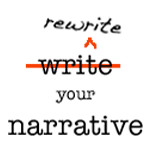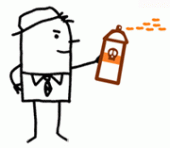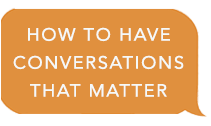Celeste Headlee, who has worked as an NPR and Public Radio host for decades, knows the ingredients of a great conversation: honesty, brevity, clarity and a healthy amount of listening. Author of We Need to Talk: How to Have Conversations That Matter (2017), Headlee notes that most of us don’t listen with the intent to understand, but rather to reply — a dynamic that is clearly evident in many dysfunctional relationships.
Being Wrong (K. Schulz)

So many of the struggles of the couples I work with revolve around one or the other’s need to always be right, to hold on tight to ideas, beliefs or perceptions as if their lives depend upon it.
While possibly protecting us from our own self-doubt and uncertainty, this need to always be right “calcifies” our ability to listen well, to be flexible and open-minded, and makes us a lot less fun to be around to boot…. And by regularly dismissing our partner’s ideas and feelings, we are also inadvertently poisoning our relationship.
Don’t Ask Me Where I’m From (T. Selasi)

When someone asks you where you are from … do you sometimes not know how to answer? Writer Taiye Selasi speaks on behalf of “multi-local” people, who feel at home in the town where they grew up, the city they live now and maybe another place or two. “How can I come from a country?” she asks. “How can a human being come from a concept?”
Reshape your Story, Reshape your Relationship (M. Kauppi)

Many of us have had the experience of saying something we thought was innocuous, only to have a friend or partner interpret it as a veiled accusation or an attempted guilt-trip. Or the reverse — an innocent comment by the other is perceived as a slight or criticism. Each party experiences and interprets the same situation in very different ways.
Guidelines for Divorcing Parents of Children
When a Loved One Commits Suicide (Resources)
 Tragically, several of my clients have had to confront the suicide of a loved one, or find themselves in the position of wanting to support someone who has experienced such a loss. The following list of resources focuses on supporting adolescents and young adults, but is relevant for a wider population as well.
Tragically, several of my clients have had to confront the suicide of a loved one, or find themselves in the position of wanting to support someone who has experienced such a loss. The following list of resources focuses on supporting adolescents and young adults, but is relevant for a wider population as well.
Teach People How to Treat You
 To a large degree (although not across the board or in every circumstance), we have much greater power to control how people treat us than we are aware. Often from fear of appearing selfish, unkind, or losing connection, we allow ourselves to be disrespected, and in so doing, start to lose pieces of ourselves.
To a large degree (although not across the board or in every circumstance), we have much greater power to control how people treat us than we are aware. Often from fear of appearing selfish, unkind, or losing connection, we allow ourselves to be disrespected, and in so doing, start to lose pieces of ourselves.
How to Handle Toxic People (K. Schreiber)
 Many of us have been challenged by toxic people in our lives who spew negativity, leaving us feeling somehow demeaned and deflated. From the Latin word toxikon, meaning “arrow poison,” the term toxic means literally: to fill or poison in a targeted way, says Theo Veldsman, head of Industrial Psychology and People Management at the University of Johannesburg.
Many of us have been challenged by toxic people in our lives who spew negativity, leaving us feeling somehow demeaned and deflated. From the Latin word toxikon, meaning “arrow poison,” the term toxic means literally: to fill or poison in a targeted way, says Theo Veldsman, head of Industrial Psychology and People Management at the University of Johannesburg.

